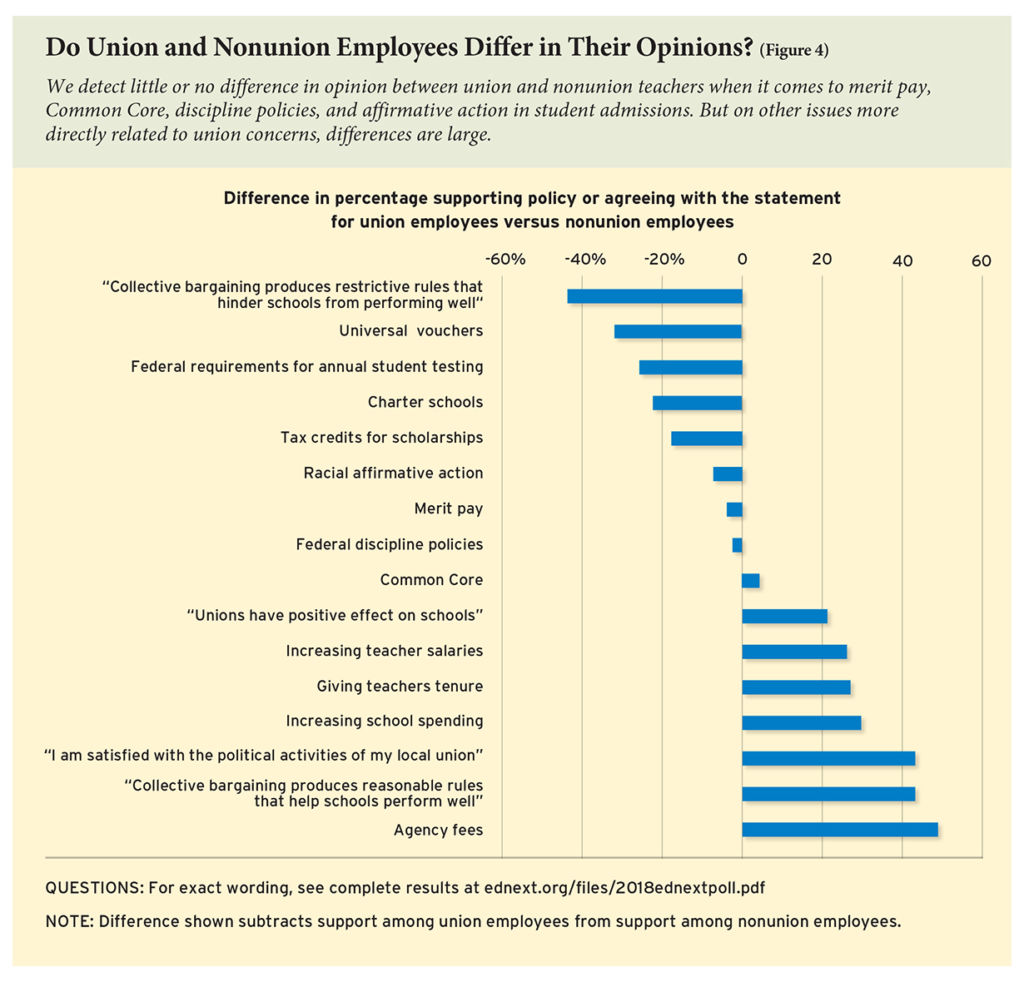Do Union and Nonunion Teachers Differ in Their Opinions?
Public school teachers in Minnesota can decide whether to financially support a union or not and are no longer compelled to support views they disagree with. This decision was made possible by the Janus v. AFSCME case, where the First Amendment right to freedom of speech was restored to all public-sector employees.
But outside of whether belonging to a union is the best choice for themselves and their families, do nonunion and union teachers differ in their opinions?
An Education Next survey discovered a difference in opinion depended on the issue in question. Teachers closely agreed on opposing merit pay and opposing federal discipline policies that prevent schools from expelling or suspending minority students at higher rates than other students.
But on issues more directly related to union concerns, differences were stark. Sixty-three percent of union teachers said they are “satisfied with the political activities” of their local union compared to 21 percent of nonunion teachers. Fifty-six percent of nonunion members said unions have a positive impact on schools compared to 77 percent of union teachers.
Education Next concludes: “Clearly, the free-speech issues surrounding the agency-fee [Janus] decision go well beyond plaintiff Mark Janus. Union leaders may find themselves seriously challenged as they seek to sustain union membership in the post-Janus political environment.”